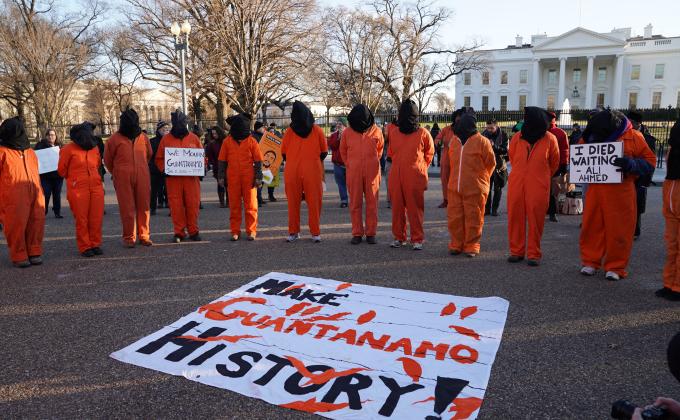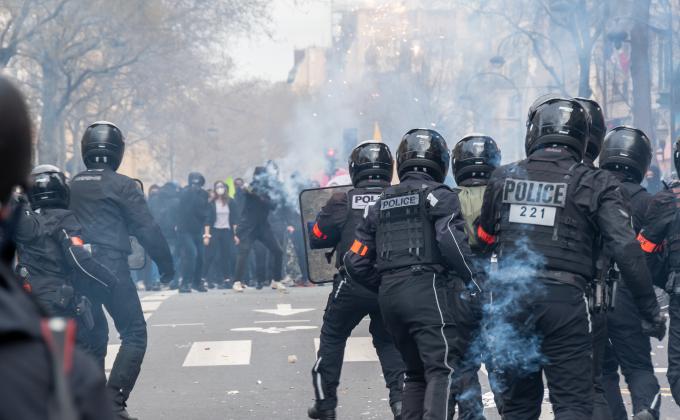On Wednesday 23 November 2011, 19:00 - 22:30, ICCT hosted the Seminar "Terrorists on Trial: The Lockerbie Case" at Campus The Hague Location Stichthage, 13th Floor. This was the first meeting in a series of seminars focusing on the performative and communicative aspects of terrorists trials and the different actors involved.
On 21 December 1988, Pan Am Flight 103 crashed in the Scottish town Lockerbie after a bomb exploded during the flight, killing all 243 passengers, 16 crew members and 11 people in Lockerbie. Following a three year investigation indictments for murder were issued against Abdelbaset al-Megrahi, a Libyan intelligence officer and the head of security for Libyan Arab Airlines (LAA), and Lamin Khalifah Fhimah, the LAA station manager in Luqa Airport. Following protracted negations, the two suspects were finally handed over to Scottish police in 1999 at Camp Zeist, The Netherlands, chosen as the neutral venue for the trial. On 31 January 2011, al-Megrahi was convicted of murder by a panel of three Scottish judges; Fhimah was acquitted. In 2009, al-Megrahi was controversially released on compassionate grounds due to terminal cancer. This year, the Lockerbie case is once again in the spotlight with Muammar Gaddafi’s ousting and the news that the Libyan interim government would perhaps be ready to probe possible other Lockerbie suspects.
This seminar was part of the ICCT "Terrorists on Trial Seminar Series", which focuses on the performative and communicative aspects of a terrorist trial. The Series builds upon the work of ICCT Research Fellow Dr. Beatrice de Graaf, the earlier ICCT Expert Meeting "Terrorism Trials as Theatre" and the NIAS Research Theme Group "Terrorists on Trial. The Court Room as a Stage in the Struggle for Publicity, Public Support and Legitimacy". The seminars aim to apply a performative perspective to terrorism trials, hence not solely concentrating on the immediate judicial performance of the magistrates and/or the defence, but putting trials their wider sociological context, adopting notions of social drama and communication sciences. Terrorism trials serve multiple ends, depending on the actors involved, who are all busy trying to mobilise their respective target audiences around their narratives and (in)justice frames. Such trials are a very visible and theatrical means of demonstrating concepts and narratives of (in)justice. The one who has the most compelling performative strategy will succeed in convincing his target audience of his narrative. Through analysing the role played by the various actors (suspected terrorists, lawyers, judiciary, victims, media, etc.) in these trials, a fresh look may be taken at their judicial, political and social impact.
This first Seminar examined the Lockerbie case through the prism described above. Speakers included Judge Howard Morrison (Judge at the International Criminal Tribunal for the former Yugoslavia), Mr. Paul McBride QC (Senior Counsel at Black Chambers) and Mr. Ian Ferguson (Investigative Journalist). They reflected upon the Lockerbie trial from different perspectives, analysing the role and performativity of actors such as the judiciary, defence lawyers and the media. The meeting was chaired by Prof. Dr. Liesbeth Lijnzaad (extraordinary professor Practice of International Law at Maastricht University and Legal Advisor Netherlands Ministry of Foreign Affairs). Following the three presentations, a lively panel discussion and Q&A ensued.
Agenda
19:00 – 19:05: Word of Welcome by Dr. Beatrice de Graaf
19:05 – 19:10: Opening by the Chair Prof. Dr. Liesbeth Lijnzaad
19:10 – 19:40: Presentation by Judge Howard Morrison
19:40 – 20:05: Presentation by Mr. Paul McBride QC
20:05 – 20:30: Presentation by Mr. Ian Ferguson
20:30 – 21:30: Panel Discussion and Q&A
21:30 – 22:30: Drinks Reception




